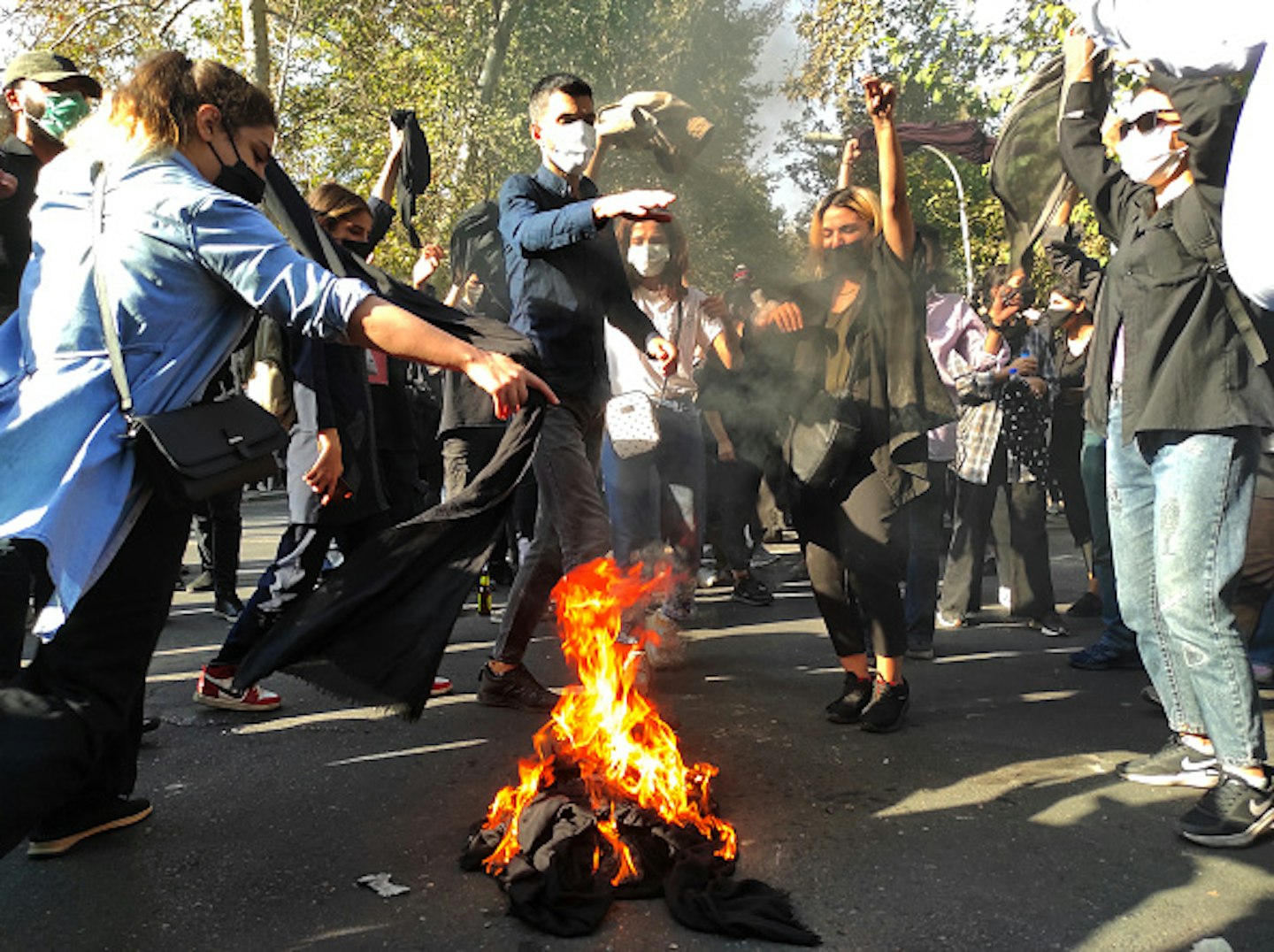Protests over the death of Mahsa Amini have entered their sixth week in Iran. Last Sunday, thousands gathered after the head of the Islamic Revolutionary Guard Crops (IRGC) issued a final warning that demonstrations would be stopped with unprecedented force.
Mahsa Amini is the 22-year-old woman who was allegedly beaten to death by Iran's so-called morality police, after being arrested for wearing her hijab ‘inappropriately’. Since her death, over 200 protesters fighting for women’s freedom in Iran have died. As a second-generation emigrant of Iran, the oppression that grips the women that bore my heritage hits deep. I still have family over there, terrified yet still fighting for their right to be treated as human beings.
The Iranian regime is one where, legally, a woman’s testimony is worth half of a man. Women have no rights to vote, marry a man of their choice or divorce him too, not even the right to wear what they want to wear in public. The people of Iran have been oppressed in this dictatorship regime for more than 40 years, but now we are witnessing what looks like the start of a revolution.

My mum has not been able to hear from her sisters in Iran since the protests began. Once every two weeks a family member will download a VPN and let my mum know they are okay, but we live in fear that anything could happen. Some of my family are going to these protests in secret because they don’t want to worry their elders, but they also can’t stay inside and not speak up. Every time someone walks out the door to go and protest, to stand for what they believe in, there is a chance they will never return. This was the case for so many who have died during the demonstrations, including teens like 17-year-old Nika Shakarami and 16-year-old Sarina Esmailzadeh.
That could have been me if my family had stayed in Iran. My mother was eight months pregnant with me when my father turned to her and said, ‘We need to leave Iran, there is no future for our kids here.’ My brother was just eight years old, and we often wonder how our lives would’ve turned out had they chosen to stay. It’s because of their choice to leave that even from a young age, I knew instinctively that I had to do something significant in life. My parents left their home country so that me and my brother had better opportunities, we feel a sense of duty to prove their sacrifice was worth it.
There is a pain that connects Iranian women inside and outside the country.
My parents' generation were the last ones to experience Iran before the 1979 revolution, when the new regime took power and with them brought much oppression. They tell stories of a country filled with art, music, poetry, incredible food, and a joyful culture. When I went back to Iran as a little girl I could feel the remnants of this culture, it was also very clear to me is that freedom of expression was no longer a part of Iran, especially for women.
There is a pain that connects Iranian women inside and outside of the country. Maybe it is ancestral pain, maybe it's the pain we carry from knowing how beautiful and powerful our country once was and seeing it crumble to pieces. Maybe it's from feeling shame, the shame that the oppressors have put on us, ingrained in us, the shame of simply being a woman in a country where that bears no value.
I haven’t visited Iran now since 2013 as once I started making music there was no way I could ever go back again, I risked being put in jail or worse. As a woman, me pursuing my passion and purpose is against the law there.
I really would love to return, to visit family, my dads’ grave, sing with my brothers and sisters - but right now, all I can do is speak up and encourage support for everyone who is fighting for their lives in the burning streets of Iran.
I am an Iranian woman who was born in the west, I didn't choose this, but I am very lucky my parents did. It makes my dedication to standing up for Iranian women feel even more essential. The power of my voice as a musician means that I can share the fight for freedom in Iran with people on a global scale, especially with the influence social media. I can share the harrowing stories my people have to face every day, and hope that this opens the world's eyes to frightening reality.
Just like any human rights movement, education and awareness is the first step. Just by reading and sharing information we can begin to understand how much change is needed, and where it takes best form. From there it’s down to the worlds leaders to take on the fight against Iran, and hammer home the message to the Iranian government that the value or human life is the same regardless of gender and race - this is a basic human right. Until all women are free from oppression, none of us are.
